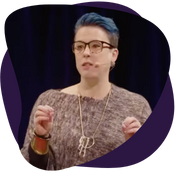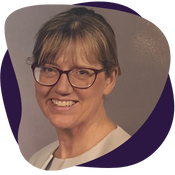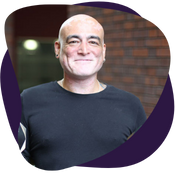November 6, 13 & 20 | 8AM - 1PM MT
LIVESTREAM & 60-day ON-DEMAND Access
Early Bird Tickets Starting at $89
Through October 19, 2025
PROGRAM
SPEAKERS
SPONSORS
CONTINUING EDUCATION
Virginia Spielmann (she/her), PhD, OTR/L 
Executive Director
STAR Institute
USA
Host
Virginia is a well-travelled speaker, coach and educator on topics including sensory integration, DIR/Floortime, child development and infant mental health. She has conducted trainings in Kenya, Australia, the Philippines, Vietnam, Hong Kong, and the USA and leads workshops at international conferences.
Virginia is a founder and former Clinical Director of SPOT (Speech, Physical, and Occupational Therapy) Interdisciplinary Children's Therapy Center in Hong Kong, where she led a large and widely respected inter-disciplinary team.
Virginia obtained her BSc in Occupational Therapy in Oxford England (2002) and her Masters in Occupational Therapy from Mount Mary University, Milwaukee (2018). She is a DIR/Floortime Training Leader and Expert and clinical consultant for the Interdisciplinary Council for Development and Learning (ICDL). Her extensive pediatric experience includes children on the autism spectrum, as well as those with Sensory Processing Disorder, infant mental health issues, adoption, developmental trauma.
Virginia has considerable post-graduate training, she is certified on the SIPT and is currently completing her Ph.D. in Infant and Early Childhood Development with an emphasis on mental health, with Fielding Graduate University, in Santa Barbara. She is a published author and contributed to the STAR Frame of Reference as part of the 4th Edition of Frames of Reference for Pediatric Occupational Therapy, alongside Dr. Miller and Dr. Schoen.
Karen E. Adolph (she/her), PhD 
Julius Silver Professor of Psychology & Neuroscience, Professor of Applied Psychology, Professor of Child & Adolescent Psychiatry
New York University
USA
Karen E. Adolph is Julius Silver Professor of Psychology and Neuroscience and Professor of Applied Psychology and Child and Adolescent Psychiatry at New York University. She uses observable motor behaviors and a variety of technologies (video, motion tracking, instrumented floor, head-mounted eye tracking, EEG, etc.) to study developmental processes. Adolph directs the Databrary.org video library and PLAY-project.org, and she maintains the Datavyu.org videoannotation tool. She completed a Ph.D. at Emory University and postdoctoral fellowship at Albert Einstein College of Medicine. She is a Fellow of the American Psychological Association, Association for Psychological Science, and American Association for the Advancement of Science and Past-President of the International Congress on Infant Studies. She received the Kurt Koffka Medal, Cattell Sabbatical Award, APF Fantz Memorial Award, APA Boyd McCandless Award, ICIS Young Investigator Award, FIRST and MERIT awards from NICHD, and five teaching awards from NYU. She chaired the NIH study section on Motor Function and Speech Rehabilitation, served on the McDonnell Foundation advisory board, and serves on editorial boards of Current Directions in Psychological Science and Developmental Science. Adolph has published 220+ articles and chapters. Her research on perceptual-motor learning and development has been continually funded by NIH and NSF since 1991.
Joanne Flanagan (she/her), ScD, OTR/L 
Associate Professor
Nova Southeastern University
USA
Joanne Flanagan, ScD, OTR/L is an Associate Professor in the Occupational Therapy Department at Nova Southeastern University. Prior to coming to NSU, she was an Associate Professor at the University of Texas Medical Branch. She has developed extensive clinical and research experience working with autistic children and children with sensory processing challenges at the National Institutes of Health and Kennedy Krieger Institute in Maryland and the STAR Institute in Colorado. She received her Bachelor of Science at Texas A&M University, her Master of Science in Occupational Therapy at Washington University, and her Doctor of Science degree in Occupational Science at Towson University. Her research interests are early play behaviors and movement in infants at elevated likelihood for autism. Dr. Flanagan has published in peer-reviewed journals and presented at regional, national, and international conferences on her research.
Early Play Differences in Autistic Children
Play behaviors may be early developmental differences in autistic children. We will present our research on infant behavior and the development of the Infant Motor and Engagement Scale (IMES), which may help to screen infants at elevated likelihood for autism and lead to earlier intervention to support development and well-being in young children and families.
Roseann C. Schaaf (she/her), PhD, OTR/L, FAOTA 
Professor, Department of Occupational Therapy, Director, Jefferson Autism Center of Excellence,
Research Director, Collaborative in Ayes Sensory Integration®
USA
Roseann Schaaf is Director of the Jefferson Autism Center of Excellence, Professor of Occupational Therapy at Thomas Jefferson University, and Research Director for the Collaborative in Ayes Sensory Integration®. Dr. Schaaf, an occupational therapist, with a PhD in Neuroscience and is on the faculty of Jefferson’s Farber Institute for Neurosciences. She has devoted her career to the study of sensory features in autism and other neurodevelopmental conditions with the goal of improving the lives of children and families. Dr. Schaaf has received over $10 million for research including support from the National Institutes of Health, the Patient-centered Outcomes Research Institute (PCORI), and the Lurie Foundation. Dr. Schaaf is the author of 6 books and over 100 peer-reviewed articles/abstracts and is now extending her work to diverse and underserved communities. She is the recipient of the American Occupational Therapy’s A.J. Ayres Award and was awarded the Eleanor Clark Slagle lectureship, the highest research honor of the profession.
Sensory versus Behavioral Intervention for Autism? A Comparison of Occupational Therapy using Ayres Sensory Integration and Applied Behavior Analysis
Occupational Therapy using Ayres Sensory Integration® (OT-ASI) is an evidence-based approach for autistic children. OT-ASI is a theoretically driven intervention that is based on the principles of neuroplasticity, developmental science, and occupational therapy, espousing that individually tailored sensorimotor experiences, contextualized in play, at the “just-right” challenge, can improve sensory integration and subsequently adaptive skills needed for participation in activities and tasks. OT-ASI is designed to specifically address the underlying sensory and sensory-motor differences that impact function and participation. Despite the evidence for OT-ASI, behavioral interventions such as applied behavior analysis (ABA) have long been recommended and recognized as the gold standard in evidence-based intervention for autism. While both OT-ASI and ABA interventions have evidence demonstrating positive outcomes in daily living skills, individual goals, and participation in activities and tasks, these two approaches utilize distinctly different theoretical models and proposed mechanisms of action. Understanding the ways in which these two different approaches may or may not improve daily living skills for autistic children who also show sensory differences is an important interdisciplinary collaboration which can improve intervention services, options, and outcomes for autistic individuals and their families. Here, we present our findings from a rigorous effectiveness trial comparing OT-ASI to ABA. We examine the outcomes of each for autistic children with sensory differences.
After participating in this session, attendees should be able to:
- Compare and contrast the theoretical underpinnings of OT-ASI and ABA
- Understand the similarities and differences in OT-ASI and ABA
- Learn the results of a study designed to compare OT-ASI and ABA
- Apply the findings from this study to your practice or research.
Madalene Rutherford (she/her), OTD, OTR/L 
Occupational Therapist, Author
Rutherford Occupational Therapy Services
USA
Dr. Madalene Rutherford (OTD, OTR/L) is a licensed doctor of occupational therapy, born and raised in Lewistown, Pennsylvania. She is the owner and occupational therapist of Rutherford Occupational Therapy Services. Her inspiration to become an occupational therapist occurred through watching one of her nephews, who has an autism spectrum disorder, receive occupational therapy during toddlerhood and school. The desire to help other children, families, and adults the way this therapist helped her nephew (and family) motivates her to serve people in her community.
Dr. Rutherford received her doctoral degree of occupational therapy from Misericordia University in 2023. She specializes in providing a variety of body-based interventions for people of all ages to heal traumatic experiences. She believes that helping people heal their hearts from trauma creates a healthy and loving world. Additionally, she graduated from Elizabethtown College with her master’s degree of science in occupational therapy in 2019. Her specialties included pediatric development, as well as understanding the way disabilities or diseases affect women’s experiences of mothering their children. Her employment experience includes early intervention services for infants and preschoolers with developmental delays as well as school-based occupational therapy services. Her clinical experiences included adult inpatient rehabilitation for people with physical disabilities and diseases. She also completed clinical rotations in an adult inpatient psychiatric unit, which helped to spark her interest in trauma-informed care and mental health. These experiences empower her to provide holistic and comprehensive care for people of all ages with a variety of needs. She is the author of Sensory Interventions for Behavioral Regulation of Children with Trauma: A Reference Guide for Occupational Therapy Practitioners. She hopes to write more books in the future. Additionally, she is a guest lecturer at several occupational therapy universities in Pennsylvania on the topics of trauma and mental health care.
Dr. Rutherford believes helping people heal from traumatic experiences will create a healthier and more loving world. In her words, “One day, I would like to see this area of practice become mainstream or traditional so that as many children and adults as possible with trauma can receive the help that their bodies and brains need! One, of many ways, we can contribute to this future is by consuming research and resources to help us grow our own practice in these areas – and spread the word to other occupational therapists and occupational therapy students (who will be our next generation of practitioners one day)!”
When she is not working, she enjoys Brazilian Jiu Jitsu, fitness, reading, the great outdoors, cooking, and spending time with her loved ones and fur babies. Happy Healing!
A Scoping Review of Sensory Interventions for Behavioral Regulation of Children with Trauma
The purpose of this presentation is to describe the effectiveness of effectiveness of sensory-based interventions on self-regulation skills of children with histories of childhood trauma. Specifically, this presentation will review, appraise, synthesize, and discuss evidence about sensory-based interventions as bottom-up approach for self-regulation skills on children with childhood trauma. As a secondary, yet equally-important purpose, this capstone will raise awareness about and advocate for the recognition of the distinct sensory-processing needs of children with histories of trauma. Various conceptual articles and position papers in the mental health field advocate for the use of sensory-based interventions for the treatment of childhood trauma; however, minimal empirical literature exists to validate these claims. A total of sixteen empirical articles were located and included in this review. These sixteen empirical articles, as well as the three correlational studies, and one conceptual article, delineate an emerging niche in social science disciplines that addresses the dysregulation that childhood trauma can create in a child’s central nervous system. While various social science disciplines incorporate approaches that use sensory-based interventions, occupational therapy is the only profession whose scope of practice specializes in sensorybased interventions. This scoping review has unveiled the following empirical approaches that include sensory-based interventions: five yoga studies, four sensory intervention studies (derived from occupational therapists), two neurosequential model of therapeutics (NMT) studies, two sensory motor arousal regulation treatment (SMART) intervention studies, one attachment, self-regulation, and competency (ARC) intervention study, one neurophysiological psychotherapy model study, and one somatic soothing intervention with structured sensory interventions for traumatized children, adolescents, and parents (SITCAP) intervention study. Three correlational studies and one conceptual study were included to supplement the empirical studies in this review.
After participating in this session, attendees should be able to:
- Describe the role of occupational therapy in evaluating the sensory processing needs of children with histories of trauma.
- Identify evaluation approaches for behavioral regulation of children with trauma that incorporate sensory processing components.
- Summarize the scoping review process used to gather the evidence-base about sensory processing for behavioral regulation of children with histories of trauma.
- Define evidence implementation barriers.
Erin Greer Smith (she/her), OTD, OTR/L 
Occupational Therapist/Researcher
USA
Erin recently earned her Clinical Doctorate in Occupational Therapy from the University of Alabama at Birmingham (UAB). She currently practices as an inpatient rehabilitation occupational therapist, working with both adult and pediatric populations. Erin is the eldest of five siblings in a blended family, and her personal experiences, particularly her relationship with her adopted brother, who has Down syndrome, inspired her to become an occupational therapist. His influence also shaped the focus of her Capstone project, which explores the often-overlooked role of the sibling with no identified developmental concerns in pediatric occupational therapy services.
With a strong foundation in clinical research and lived experience, Erin brings a fresh perspective to an understudied area of occupational therapy. Her research provides fresh insights, challenges norms, and aims to expand sibling roles in holistic family involvement in occupational therapy.
The Forgotten Sibling: Exploring the Effects of Sibling Inclusion in Pediatric Occupational Therapy Services
Involving the sibling without any identified developmental concerns in occupational therapy sessions can positively impact the entire family system. You will learn about the ways sibling integration enhances communication, emotional regulation, and play between siblings with and without developmental disabilities. This presentation will highlight practical implications for therapists seeking to adopt a more holistic, family-centered model of care. Additionally, this presentation will provide evidence-based insights on supporting caregivers and promoting longterm healthy family relationships through sibling integration.
After participating in this session, attendees should be able to:
- Define the role of siblings without identified developmental concerns in pediatric OT services.
- Describe how sibling integration impacts communication, emotional regulation, and play within the family system.
- List at least three evidence-based strategies for involving siblings in OT sessions to promote holistic care
Beverely Williams (she/her), BSc OT, MSc SI 
Specialist Occupational Therapist
Sense-it Therapy Consultancy; Mind In2 Action Ltd
United Kingdom
I’ve spent almost three decades walking alongside individuals and families through some of their most challenging — and meaningful — moments. My roots are in Adult and Children’s Social Services, and I held a pivotal Team Lad role at Ysgol Y Deri School with the NHS. These years shaped not only my clinical skills but also my deep belief in compassionate, holistic support.
In 2018, I took the leap into private practice as an Occupational Therapist and Case Manager. Since then, I’ve had the privilege of working closely with children who’ve experienced brain injuries, developmental trauma, or sensory processing differences — and with the families who love and care for them.
As an independent Occupational Therapist my practice now centres on Sensory Integration and Sensory Attachment Intervention. However, my current passion is to support families through a systemic and holistic approach, to enable the adults to be in the best possible position to provide nurturing and consistent care for their loved ones. I find this work both deeply clinical and deeply human — and it never stops inspiring me.
Valeria Isaac (she/her), MSc, OT 
Owner and Director
Neurosens
Chile
Owner and Director of Neurosens, an organization dedicated to education and laboratory for research in sensory integration, in Chile. Director of Program Accreditation for the International Council of Education in Ayres Sensory Integration (ICEASI).
Graduated as an occupational therapist from University of Chile. Completed OT610 program through USC. Obtained Master in Science degree in Biomedical and Biological Sciences from University of Chile. Currently PhD candidate in Cognitive Neurosciences. Currently leading two lines of research through Neurosens in collaboration with two Univeristies, the first includes vestibular processing and arousal in ADHD, the second is interoception development.
The Effects of Arousal on Executive Functions
Neuroscientific evidence has shown that the regulation of arousal has a direct impact on executive function performance. Arousal is a function related to a complex network involving cortical and subcortical structures. In this presentation, we will discuss the relationship between the two and how this may be affecting behaviors such as difficulty paying attention and organization of behavior.
After participating in this session, attendees should be able to:
- Identify the neurofisiological networks involved in arousal regulation.
- Describe the executive control network.
- Understand how these networks involved in arousal are associated with areas dedicated to executive function in the brain.
- Discuss the relationship between arousal dysregulation and difficulties in attention and organization of behavior.
Susan Allen (she/her), PhD, MSc, BSc, DipCOT 
Senior Lecturer
Oxford Brookes University
United Kingdom
Sue is a Senior Lecturer in Occupational Therapy at Oxford Brookes University, dedicated to empowering children and their families. Her career, spanning the U.K., U.S., and Singapore, has seen her lead clinical and academic development. Sue's research explores how sensory processing differences impact daily routines and how occupational therapists can best facilitate participation in everyday life. Her current Ph.D. work, which is supported by the Elizabeth Casson Trust, involves developing a group coaching intervention for mothers of children with sensory processing differences. She is also a recognized expert in her field, holding a Fellowship from Sensory Integration Education for her significant contributions to sensory processing and therapist education.
Luke Beardon (he/him), PhD 
Senior Lecturer in Autism
Sheffield Hallam University
United Kingdom
I have been working for decades in the autism field, in capacities ranging from practitioner to researcher to trainer, first working with autistic children as a volunteer aged fourteen. For years I was a Support Worker for Autistic adults in residential services; I subsequently worked for The National Autistic Society (NAS) helping to co-ordinate the development of a residential service for young autistic adults. I worked within this service supporting young adults with a range of complex needs, from those with high dependency needs and severe learning disability, to Autistic individuals accessing Higher Education. I went on to hold three additional posts at the NAS working with Local Authorities developing provision and support culminating with being Head of Training and Consultancy before moving to Sheffield Hallam University.
I co-wrote the ASPECT consultancy report (2007), the largest UK consultation with autistic adults undertaken at the time; I am co-editor of five books on autism published by Jessica Kingsley, and am sole author of an additional seven books: ‘Autism in Adults’ (2017); ‘Autism in Childhood’ (2019); ‘Avoiding Anxiety in Autistic Children’ (2020); ‘Avoiding Anxiety in Autistic Adults’ (2021); ‘What Works for Autistic Children’ (2022); ‘What Works for Autistic Adults’ (2023); and ‘Reasonable Adjustments for Autistic Children’ (2024) and have several other publications in journals and books.
I have run a Project developing autism services within a specific Local Authority, been involved in the setting up and running of two autism Social Groups and have also been employed by the NAS as Regional Development Officer co-ordinating developments over a large geographical area. This has given me the background experience to work at a strategic level within Local Authorities to develop good practice in the field of autism. The Project included the development of diagnostic services, day provision, residential provision, and transition services.
I have been part of a research team at Nottingham University running a three-year project and have several publications in National and International journals related to the project. I completed my Doctoral thesis at Sheffield Hallam University which was around understanding autistic individuals who had been involved in the Criminal Justice System which subsequently led me to being an expert witness for several years providing reports to court.
I have provided consultancy around how to work with and support autistic individuals, organisational consultancy, and consultancy to Local Authorities and National bodies, and have spoken at numerous National and International conferences on a variety of autism related topics. I have also addressed parliament in Westminster and the United Nations in New York.
My most recent post is with Sheffield Hallam University, as Senior Lecturer in autism. I run courses at different academic levels in autism and am the Course Leader for the Post Graduate Certificate in Autism, while continuing to research in the field. I supervise several students at Doctoral level, most of whom are autistic. I am proud of the several autistic (ex) students who successfully completed their Doctorates under my supervision.
Every year the student survey has run I have been nominated as either an Inspirational Teacher, Inspirational Research Supervisor, or both. In 2011 I was awarded the Inspirational Teacher Award. In 2012 I was awarded the Inspirational Research Supervisor Award. In 2018 I was awarded my third Inspirational Award and in recognition was presented the Sheffield Hallam Vice-Chancellor Award. In 2021, and again in 2022 I was awarded additional Inspirational Teacher Awards. In 2015 I was a finalist for the prestigious National Autistic Society’s Lifetime Achievement Award for a Professional. In 2016 I was the winner at the National Autistic Society’s Autism Professionals Awards for Achievement by an Individual Educational Professional. In 2016 I was nominated and reached the finals for the Autism Hero Awards run by Anna Kennedy Online in two categories: Lifetime Achievement, and Individual Professional – and won both categories. In 2021 I was awarded the Sparkle Sheffield Award for Lifetime Achievement in Autism. I have several media appearances, including BBC TV and Radio 4, The Guardian, The Independent – and an article on me appeared in the Times celebrating my achievements. My Blog was voted second best in the award winning Aukids magazine in their list of ten top all-time favourite autism Blogs.
Neuroaffirming Research Design - What Does Inclusion Look Like?
My interests are anything related to autism, pretty much to the exclusion of everything else. What is inclusion when it comes to autism and neurodivergent individuals? What does the concept of genuine co-researched participation look like, and what are the key elements that can lead to productive participatory approaches to research design? An investigation into ethics, narratives, concepts and ideas around what might constitute inclusive and neuro-affirming research.
After participating in this session, attendees should be able to:
- Make an attempt to define key characteristics of inclusion.
- Identify essential components to consider for ethical research.
- Demonstrate a nuanced approach to what we need to consider for good autism research.
- Explain why inclusion is an important consideration for autism-related research.
Steven Kapp, PhD 
Senior Lecturer in Psychology
United Kingdom
Steven Kapp, Ph.D. is a Lecturer in Psychology at the University of Portsmouth in the UK. He completed a postdoctoral research fellowship on the Wellcome Trust-funded project Exploring Diagnosis: Autism and Neurodiversity at the University of Exeter, UK. He edited the book Autistic Community and the Neurodiversity Movement: Stories from the Frontline, featuring analysis of first-hand accounts by leading autistic and allied activists, published by Palgrave Macmillan. His studies examine how conceptions of autism, neurodiversity, and support associate with identity, lived experiences, and quality of life. As a self-advocate he has supported systems change work for inclusive employment and influenced the DSM-5 autism diagnosis.
Lindy Joffe, she/her, OTD, OTR/L 
Occupational Therapist
Fortify
USA
Lindy Joffe brings over 25 years of experience to her work as a pediatric occupational therapist. She holds degrees from Columbia University (MS, 1999) and Boston University (OTD, 2022), where she focused her doctoral research on the intersection of sensory regulation and executive function, now the cornerstone of her integrative treatment model named Steady Minds.
Lindy’s passion for this work is rooted in personal experience: as a young immigrant who entered second grade unable to read, she understands how early struggles can shape learning and self-belief. Her clinical approach combines empathy, expertise, and a deep respect for each child’s potential.
Lindy has taught continuing education courses and parent workshops both locally and nationwide. She is the founder of a long-standing private practice in the San Francisco Bay Area, and has just opened Fortify, a practice dedicated to disseminating her treatment model, mentoring promising young therapists, and providing both clinical services and community-based education for families.
Lindy lives in San Francisco with her wife, 13-year-old daughter, 19-year-old son when he's home from UC Berkeley, and 70 lb super mutt. Outside the clinic, she enjoys hiking, biking, running, tai chi, making kombucha, and learning to play the piano.
Janis J. Leinfuss (she/her), OTD OTR/L 
Cofounder and Cocreator
Ready to Learn and Play
USA
Dr. Janis Leinfuss is a passionate occupational therapist with over 25 years of experience working with the pediatric population. She is a specialist in Sensory Processing and Integration Disorder, certified in the evaluation and treatment of SPD, specializing in the treatment of children with Sensory Processing Disorder (SPD), ADHD, and autism spectrum disorders (ASD). Her clinical experiences include public and private schools, private practice, and early intervention.
Dr. Leinfuss received her B.S. degree in occupational therapy from Quinnipiac University and achieved an M.S. in Exceptionalities in Special Education from Bloomsburg University of Pa and a post professional Occupational Therapy Doctorate (ppOTD) from Gannon University. Dr. Leinfuss has been published in peer-reviewed journals and has presented professionally to local, national, and international audiences. She is an adjunct faculty member in the ppOTD program at Gannon University and in the MSOT program at Seton Hall University. She currently practices at Great Kids Place in Rockaway, New Jersey.
Amanda Newchok (she/her), MS OTR/L 
Occupational Therapist
Ready to Learn and Play
USA
Amanda Newchok graduated from Quinnipiac University with her Bachelor's of Science degree in Occupational Therapy in 2000. She went on to receive a Master’s of Science in Health Care Management from the College of St. Elizabeth in Morristown, NJ. She quickly developed her deep love for the pediatric area of practice early in her career. She has worked in varied settings including private school, public school, clinic-based, private practice, and Early Intervention. Throughout these therapeutic environments, Amanda has placed an emphasis on treating the whole child and highlighting the importance of collaboration as part of a team. This led Amanda to seek out more advanced training based on the latest research on sensory processing disorder (SPD). Amanda completed her Level 2 Proficiency certification from the Sensory Therapies and Research (STAR) Institute. She was so drawn to the STAR frame of reference and philosophy she sought out greater involvement with the organization. Currently, Amanda is an instructor for the STAR Institute teaching their School-based Intensive course. She is especially devoted to articulating the importance of occupational therapy practice and concepts to families and colleagues and is proud of her occupation and the positive impact she has made.
Erin O’Hara (she/her), MS OTR/L 
Occupational Therapist
Ready to Learn and Play
USA
Erin O'Hara started her therapy career upon graduating with a BS degree in Occupational Therapy from Quinnipiac University in Hamden, CT in 2002. Finding a passion in pediatrics, she found herself drawn to those children who needed her help the most. Erin went on to receive her Sensory Integration Certificate from the University of Southern California and her Master's Degree from Johns Hopkins University with a dual focus in Mind, Brain, and Teaching coupled with Autism Studies. She is a co-author of the published, peer reviewed article, “Demystifying sensory processing to promote effective interprofessional and caregiver collaboration” and has composed various columns for NJOTA newsletters. Erin has presented professionally at both national and international conferences.
As the director of an occupational therapy department within a special needs school for over 15 years, Erin has advanced knowledge of how to facilitate occupational performance within educational practice. Erin participates in research studies and completes advanced coursework to ensure the use of evidence-based therapeutic interventions at all times. Having additional experience working in other settings such as early intervention, home care, private practice, and most recently telehealth, Erin is able to use her continued training in sensory processing disorders as well as many other specialty areas including certifications in listening programs, handwriting programs, massage, oral motor and respiration techniques to treat children of varying ages and ability levels. A majority of her career has been spent specializing in Autism Spectrum Disorders, treating children with extreme therapeutic demands. Always thinking of her clients as children first and their diagnosis second, Erin has had success implementing her knowledge in all forms of treatment.
A Strength-based Approach to Facilitate Successful Inclusion for Neurodiverse Students through Sensory Regulation
Ready to Learn and Play (RtLP) is an evidence-based framework to facilitate occupational performance for neurodiverse individuals with sensory processing challenges (Leinfuss & Karnes, 2021). As highlighted on AOTA’s Everyday Evidence podcast, RtLP uses a strengths-based approach to empower neurodiverse students and their educators/caregivers to best meet sensory regulation needs. This pioneer approach combines current neuroeducation knowledge with OT theory using teaching methods that align with how the brain learns. Thereby, RtLP may assist in supporting individuals with sensory regulation challenges to participate to the greatest extent possible in inclusive education.
Following this presentation, attendees will have a foundation to implement RtLP into therapeutic practice to support individuals with neurodiversity and sensory processing challenges. The attendees will be provided with an overview of the original research as well as the expansion studies which include larger and more diverse groups and RtLP presented via teletherapy.
Isabelle Beaudry Bellefeuille, (she/her) PhD 
Occupational Therapist
Clínica de Terapia Ocupacional Pediatrica Beaudry-Bellefeuille
Spain
Isabelle received her Bachelor of Science in Occupational Therapy from McGill University (Montreal, Canada) in 1991. Early on in her career she specialized in paediatrics and sensory integration and has been involved for nearly 30 years in developing these areas of Occupational Therapy in Spain, her country of adoption. She has completed an Advanced Practice Certificate in Neuroscience at Thomas Jefferson University under the direction of Dr. Roseann Schaaf and a Master of Science in Occupational Therapy at Virginia Commonwealth University under the direction of Dr. Shelly Lane. She obtained her PhD at the University of Newcastle (Australia), also under the direction of Dr. Shelly Lane. Her research is focused on examining the toileting habits of young children from a sensory perspective.
She has published four books and numerous articles about sensory integration theory and its application in Occupational Therapy and daily life activities. She has taught extensively in many Spanish universities and a variety of continuing education programs for occupational therapists and other health professionals in Spain and internationally. In 2005 she founded the Asociación Española de Integración Sensorial (Spanish Association of Sensory Integration). In 2014 she helped develop and implement the first school-based Occupational Therapy program in Spain; a program that is now being expanded to other schools. She has been actively involved in promoting sensory integration in Europe along with other European SI leaders. She is owner and director of Clínica de Terapia Ocupacional Pediatrica Beaudry-Bellefeuille, a pediatric Occupational Therapy clinic located in Oviedo, Spain.

